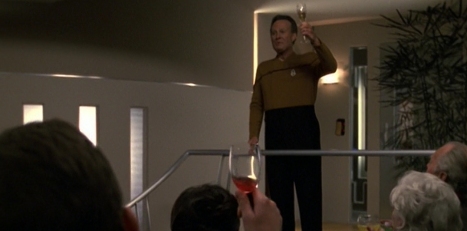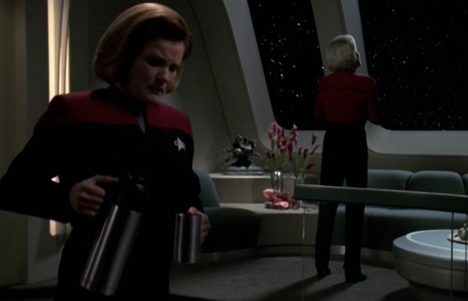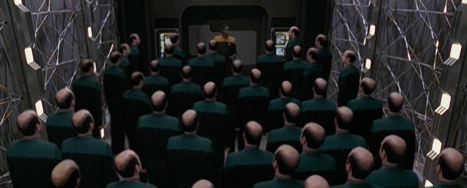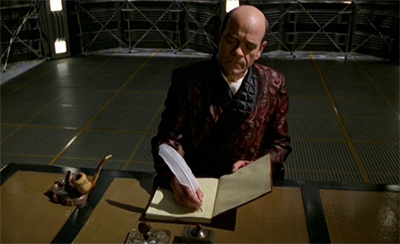The seventh season of Star Trek: Voyager is not the worst season of Star Trek ever. It isn’t even the worst season of this particular show.
It contains nothing as spectacularly ill-judged and tone-deaf as Alliances or Tattoo. None of its central characters are as insufferable as those presented in Parturition. There is nothing here quite as soul-crushingly boring as Twisted. Indeed, the seventh season of Voyager is a mostly competent season of television. Producer Brannon Braga had turned his attention to the launch of Star Trek: Enterprise, leaving the day-to-day running of the series to veteran Kenneth Biller. Biller approached that role as one of simple maintenance. He kept the trains running on time.

The result is that the seventh season of Voyager features no spectacular embarrassments. In its own way, this is an accomplishment for a Star Trek series. After all, final seasons tend to be filled with the kinds of episodes that reflect a production team desperately clutching for story ideas, leaving them open to mockery from a fandom with fixed ideas of what Star Trek should be. Final seasons tend to be home to misfires like Spock’s Brain, … And the Children Shall Lead, Interface, Dark Page, Force of Nature, Journey’s End, Prodigal Daughter, The Emperor’s New Cloak.
The seventh season of Voyager largely avoids those sorts of embarrassments. Even episodes that threaten to tip over into high camp, like Drive or Repression, maintain an even keel. The seventh season of Voyager is much more consistent than the seventh seasons of Star Trek: The Next Generation or Star Trek: Deep Space Nine. There is a neatness to it, a stability. It feels like “business as usual” for the series in a way that those other final seasons did not. Episodes like Imperfection or Human Error could easily have come from any of the three prior seasons.

Of course, this is a double-edged compliment. As much as the seventh season of Voyager is more stable and more consistent than other final seasons, it is also much more modest. The final season of The Next Generation was incredibly inconsistent, but it was still playful and ambitious, resulting in gonzo delights like Masks or Parallels. The final season of Deep Space Nine might have sagged in the middle, but it still pushed the boundaries franchise, engaging in biting criticisms in Chimera and attempting to wrap up with a sprawling ten-part series finale.
The seventh season of Voyager is not the worst season of Star Trek ever. it is, however, one of the dullest.

Continue reading →
Filed under: Voyager | Tagged: continuity, kenneth biller, star trek, star trek: voyager, voyager | 6 Comments »




































